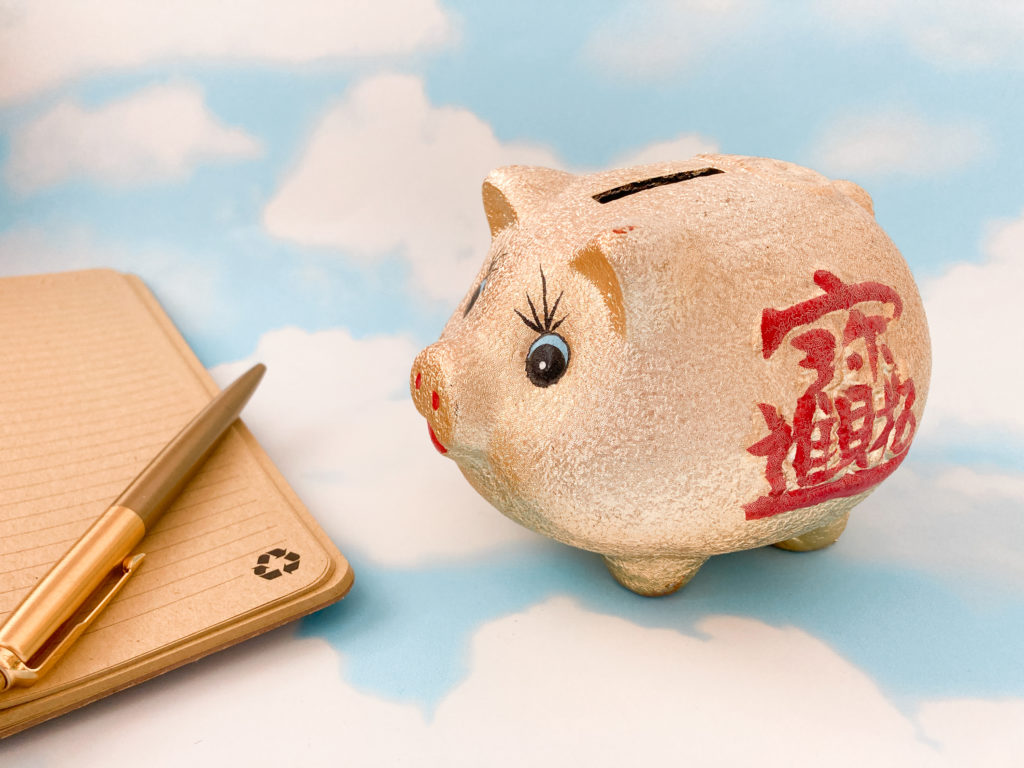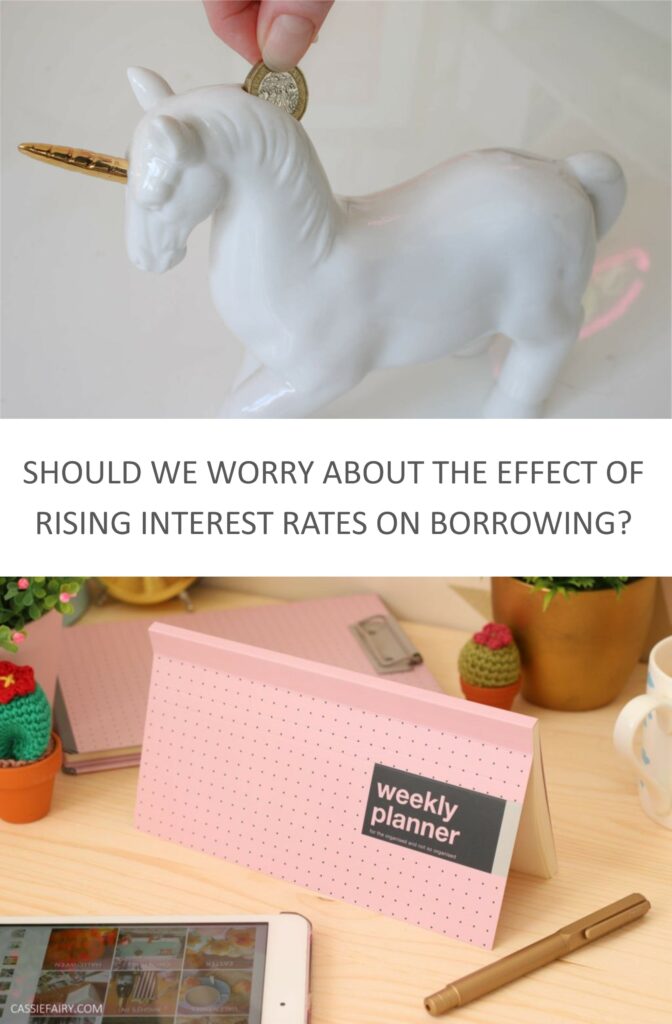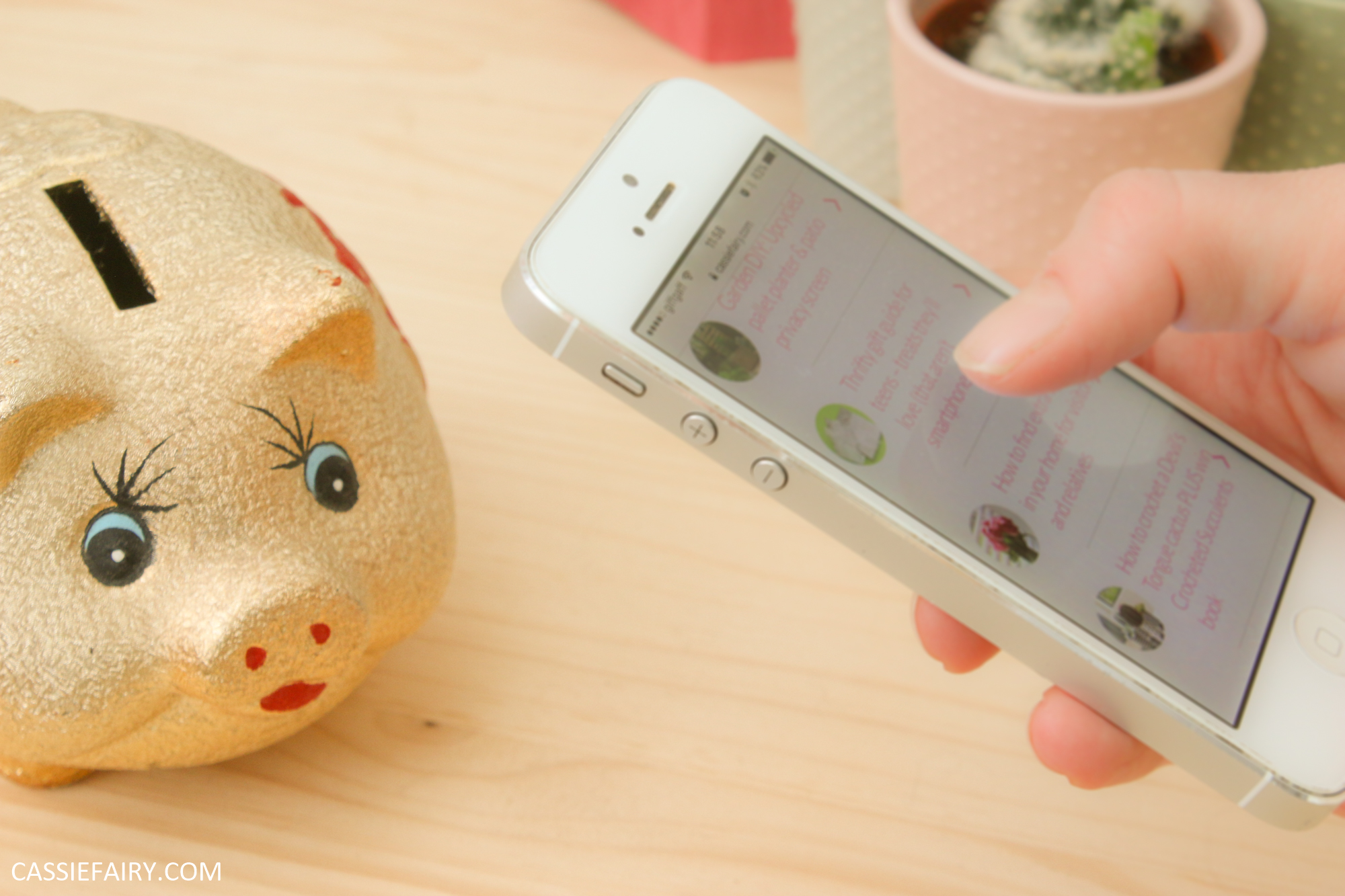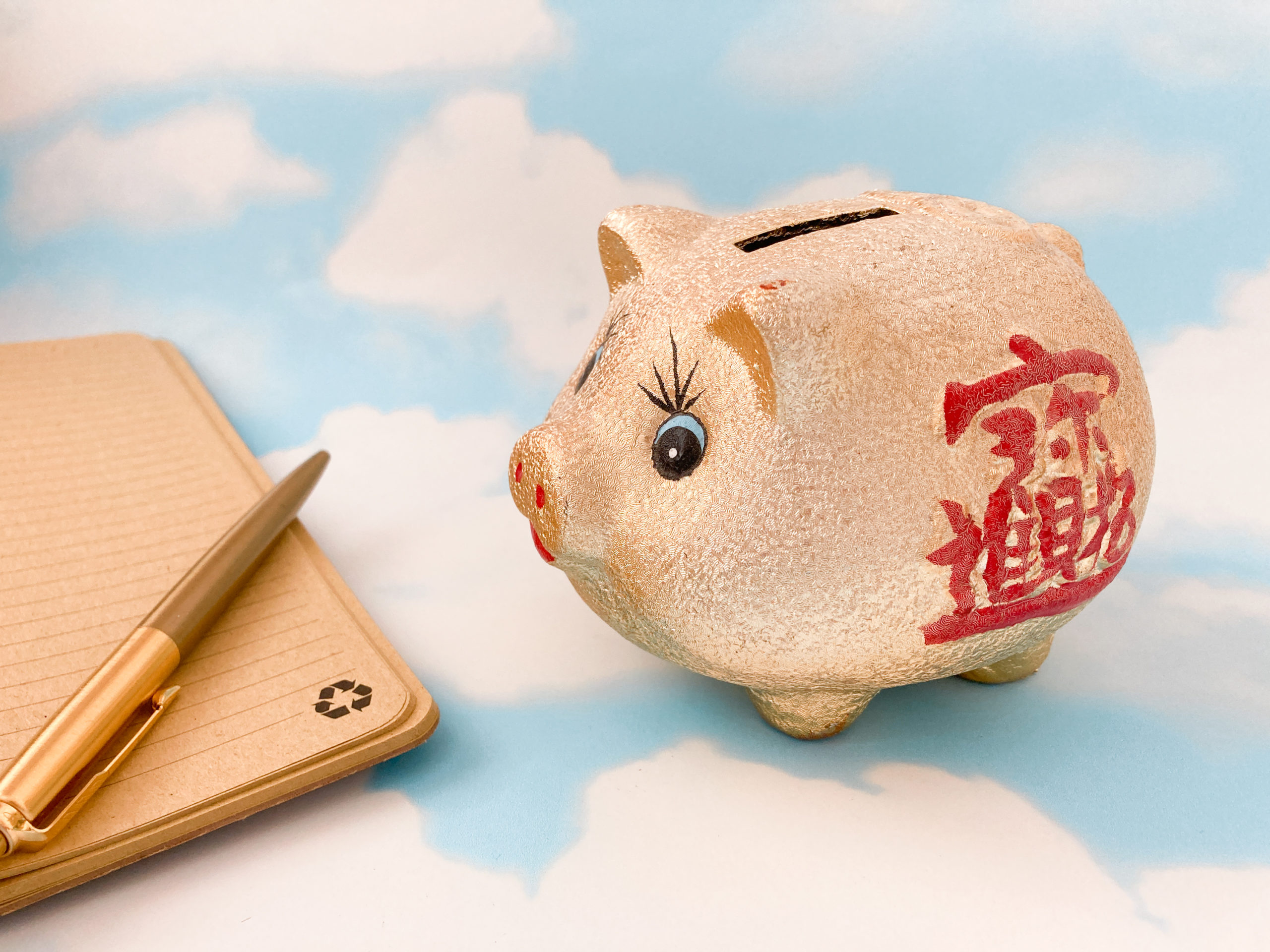
Whether you’ve got a long-term mortgage, short-term loan, credit card debt, overdrafts or have bought items on an interest-free plan, the changing interest rates will be sure to affect your personal budget in some way or another.
Here are some of the different types of borrowing and the ways in which the variable base rate might impact you.
Always take professional advice before making any financial commitments and check out websites such as National Debtline for free impartial advice, Citizens Advice for help with debt and the Mental Health & Money Advice service.

Interest-free purchases
Some stores with big-ticket items such as sofas and tech are still offering interest-free borrowing. This means the rising interest rates won’t affect your current arrangement if you’re paying for your appliances or homewares over a fixed period of time.
However, what it will impact is the interest rate you’ll have to pay after the interest-free months have ended. So, the main advice here is to make sure that you’ve completely paid off the purchase before you reach the end of the interest-free period. That way you won’t get stung with paying a high interest rate going forward.
Sure, you may have taken the interest-free option because you couldn’t afford to pay for the high-price item in full at the time but, when the repayment deadline seems months or even years away it’s easy to prioritise other bills instead of paying off your purchase. So now’s the time to scrimp and save and put every spare penny into paying off what you owe during the interest-free period to avoid paying extortionate interest rates on whatever balance is left.

Store & credit cards
The Annual Percentage Rates on store and credit cards are already some of the most expensive borrowing rates you’ll ever have, especially compared with a mortgage or a flexible loan. The APR is a yearly percentage of the amount you’ve borrowed and this can change over the year depending on your balance, the repayments you make and increasing prime interest rates.
Even though you might have taken out a credit card based on its relatively ‘good’ APR (with 14% having been considered a good rate for instant credit), most credit card APRs are variable so they can increase along with the Bank of England base rate.
I know many people use credit cards for the extra security they offer when shopping online. The variable interest rates might mean a little more cost on your purchases but, if you pay off your balance every month, the increased Bank of England interest rates shouldn’t have too much of an impact on your borrowing. Credit card interest is often compounded daily, so the quicker you can pay off the cost of that hotel room you booked online, the less interest you’ll pay on it.
You’ll only end up paying noticeably more interest if you’ve got a large balance on your credit card that you’re repaying over a long period of time. In this case, it might be better to shift your balance to a personal loan, where you can agree on a fixed interest rate to avoid further rate increases. This means you’ll know exactly how much you need to repay each month and can add this cost to your monthly budget. Download my free budget planner if you need to figure out your monthly finances.

Long-term loans and mortgages
For many people with long-term loans and mortgages, a fixed interest rate will have been agreed upon before any money was borrowed. That means the current fluctuations in interest rates in the UK won’t have an impact on the monthly repayment amount you’ve agreed with your lender.
However, when customers get to the end of the fixed term for their interest rate, it’s likely that the lender will pass the additional cost of the increased base rate on to the customers while renegotiating their mortgage or arranging a new loan agreement. So that’s when the changing interest rates will affect your monthly budget.
If you have a good Loan To Value ratio, owning over 50% of the value of your home, you might be in a better position to negotiate a lower interest rate. This is because you pose less risk to the lender as you’re borrowing considerably less than the property is worth. If you can get a low fixed-term interest rate, that’s a bonus.
The rising interest rates will certainly impact your monthly budget if you have a variable/tracker mortgage. Your monthly payments and interest fees will increase whenever the Bank of England base rate changes. However, sometimes you might need to accept this type of mortgage if you can’t get a good deal on a fixed-term interest rate.
If you’re only being offered exceptionally steep interest rates and the term would be a commitment of many years, the base rate may end up becoming lower during that period and you’ll be stuck paying the higher rate of interest until your fixed term is up. Instead, temporarily using a non-fixed term tracker mortgage might allow you to take advantage of any reductions in interest rates as they appear and as soon as it’s possible to get a good fixed interest rate, you can switch back to a 2-year, 5-year or longer term.
However, as the interest rate can increase at any time, a variable/tracker mortgage could see you paying sky-high interest rates and it’s never a good idea to agree to a deal that you wouldn’t be able to afford at the highest possible interest rate, so it may be better to go with a ‘better the devil you know’ option of a fixed interest rate for a shorter period, so you can be completely sure of how much it will cost you every month with no nasty surprises.

Interest on your savings
The only silver lining of interest rate increases is that it’s possible to earn more interest on your money if you have savings in the bank. It makes a change to finally be earning some income from your savings after many years of low-low interest rates on savings accounts.
However, the best interest rates for your savings will be through fixed-term ISAs and long-term savings accounts, which means your money will be locked in for the duration of the term. So, you’ll either not be able to access your money for a while OR you’ll have to pay a penalty if you want to withdraw your savings before the fixed term is up.
Another option for making money on your savings rather than relying on the interest rates might be choosing to invest in stocks instead. This might give you a little more flexibility BUT the best returns you’ll get are with longer-term investments, especially if you choose stocks from the ‘dividend king‘ list.
These are the companies that always make the list of top-performing stocks; those that have over 50 consecutive years of increased returns, which is always reassuring to know. Although businesses can’t guarantee the dividends they’ll pay out, choosing stocks that have consistently performed well like this gives you a better chance of making annual returns on your investments.

I hope this article has given you an idea of how interest rates may impact your life day-to-day. Always take professional advice before making any financial commitments and check out websites such as National Debtline for free impartial advice, Citizens Advice for help with debt and the Mental Health & Money Advice site. Let me know how you’re dealing with rising interest rates and please share any ideas you have for cutting your monthly costs in the comments below.
Pin it for later

This article is a sponsored collaboration. The pink links in the content indicate a sponsored link or information source. The blog post reflects my own experience and the sponsor hasn’t had any control over my content 🙂




















